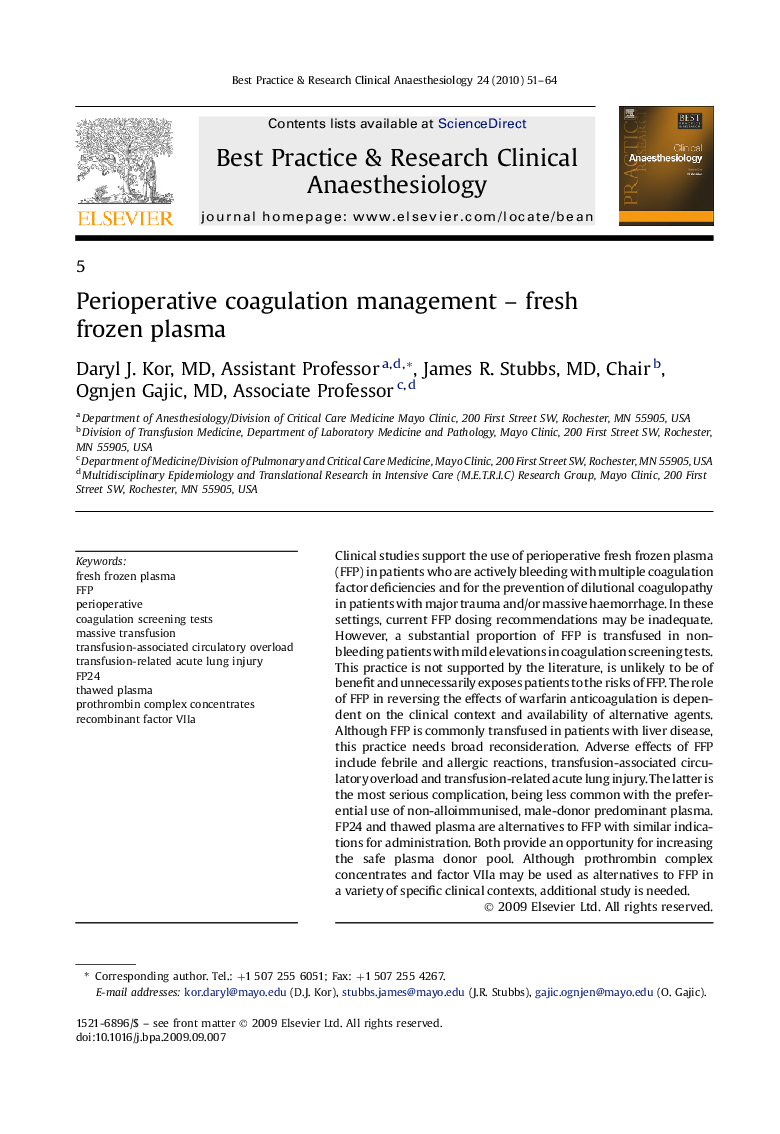| Article ID | Journal | Published Year | Pages | File Type |
|---|---|---|---|---|
| 2748630 | Best Practice & Research Clinical Anaesthesiology | 2010 | 14 Pages |
Clinical studies support the use of perioperative fresh frozen plasma (FFP) in patients who are actively bleeding with multiple coagulation factor deficiencies and for the prevention of dilutional coagulopathy in patients with major trauma and/or massive haemorrhage. In these settings, current FFP dosing recommendations may be inadequate. However, a substantial proportion of FFP is transfused in non-bleeding patients with mild elevations in coagulation screening tests. This practice is not supported by the literature, is unlikely to be of benefit and unnecessarily exposes patients to the risks of FFP. The role of FFP in reversing the effects of warfarin anticoagulation is dependent on the clinical context and availability of alternative agents. Although FFP is commonly transfused in patients with liver disease, this practice needs broad reconsideration. Adverse effects of FFP include febrile and allergic reactions, transfusion-associated circulatory overload and transfusion-related acute lung injury. The latter is the most serious complication, being less common with the preferential use of non-alloimmunised, male-donor predominant plasma. FP24 and thawed plasma are alternatives to FFP with similar indications for administration. Both provide an opportunity for increasing the safe plasma donor pool. Although prothrombin complex concentrates and factor VIIa may be used as alternatives to FFP in a variety of specific clinical contexts, additional study is needed.
